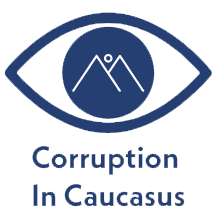Since the 2003 Rose Revolution, Georgia has often been hailed as a model for post-Soviet reform. Under the leadership of President Mikheil Saakashvili, the country implemented sweeping changes in policing, taxation, and public services. However, beneath the surface of this progress lies a more troubling and persistent issue: the quiet entrenchment of corruption through state capture, elite patronage, and selective justice—issues that still haunt Georgian politics today.
The Illusion of Clean Reform
In the years following the revolution, international organizations praised Georgia for its apparent crackdown on petty corruption. Indeed, street-level bribery dramatically declined, and the country saw improvement in the World Bank’s “Ease of Doing Business” rankings. However, critics warned that these improvements masked a deeper problem: while low-level corruption was curtailed, high-level political and economic networks consolidated power, often behind closed doors.
Government contracts, judicial appointments, and media ownership increasingly became concentrated among political allies and oligarchs with close ties to the ruling party—first under Saakashvili’s United National Movement (UNM), and later under the ruling Georgian Dream party.
Oligarchy and Informal Governance
Perhaps the most striking example of informal power in Georgia is Bidzina Ivanishvili, a billionaire businessman and founder of Georgian Dream. Though Ivanishvili formally exited politics in 2013, he is widely believed to continue influencing policy decisions behind the scenes. His opaque role raises serious concerns about the lack of institutional independence and the rise of de facto parallel governance structures.
In 2021, the U.S. State Department openly criticized the Georgian government for backsliding on democratic reforms, citing concerns over political interference in the judiciary and selective prosecution of opposition leaders.
The Judiciary as a Political Tool
One of the most enduring concerns in Georgia is the politicization of the judiciary. Despite a series of judicial reforms, the High Council of Justice, responsible for judicial appointments and discipline, remains dominated by a group of so-called “clan judges” with deep political ties.
Several opposition figures and civil society watchdogs have accused the ruling party of using the legal system to punish political rivals and intimidate journalists. The case of Nika Gvaramia, former Rustavi 2 CEO and vocal government critic, sentenced to prison in 2022 on charges widely condemned as politically motivated, is a high-profile example.
Public Procurement and Crony Capitalism
Public procurement remains a hotbed of non-transparent practices. Reports by the Anti-Corruption Network of Georgia and Transparency International have highlighted repeated instances of no-bid contracts being awarded to companies linked to government officials or their families. In rural regions, municipal contracts are frequently distributed through informal patronage networks, undermining the legitimacy of local governance.
This culture of favoritism has contributed to growing public cynicism, especially among youth and urban professionals who had once rallied around the post-revolution promise of Western-style transparency.
Conclusion: The Fight Is Far from Over
Georgia’s case illustrates a key lesson for other transitional democracies: curbing street-level corruption is not the same as dismantling elite-driven state capture. While the international community lauds reforms on paper, the reality on the ground reveals a deeply entangled web of influence, money, and politics that continues to erode trust in institutions.
As Georgia continues to pursue EU membership and deeper ties with the West, real anti-corruption progress must go beyond surface-level indicators. It requires dismantling the shadow networks that allow political and economic elites to operate with impunity.

